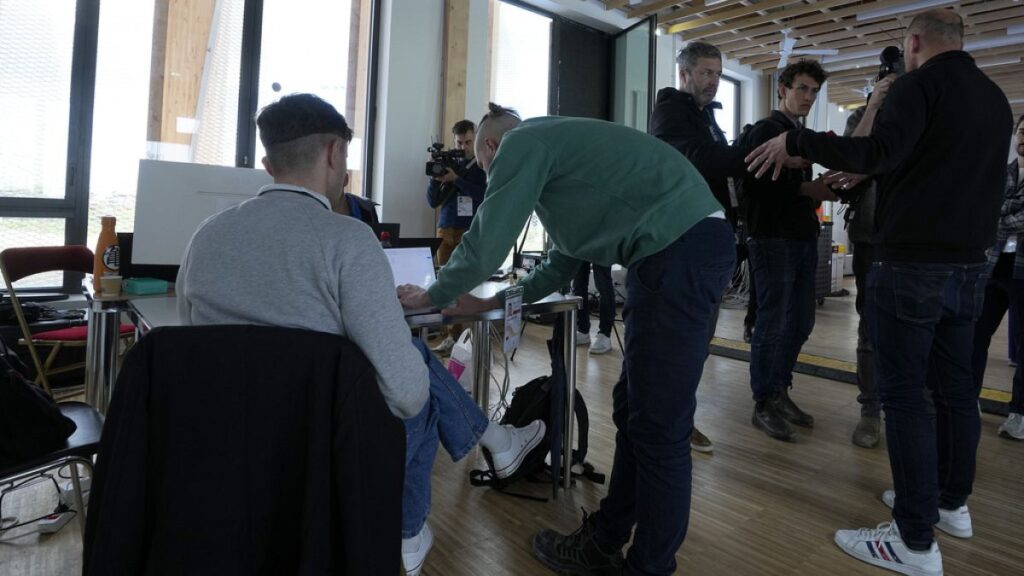France expects an increase in cyberattacks, especially from Russia, during sports contests.
Cybersecurity advocates are gearing up for the upcoming Paris Olympics.
So-called cyber warriors have studied and analyzed the strengths, tactics, and weaknesses of potential hackers.
The threat could be anyone from a group of teenage showboats or a ransomware gang to Russian military hackers with a track record of malicious cyberattacks that can cripple IT systems vital to sports contests.
But unlike the 10,500 Olympic athletes who will gather in the French capital in July, the cybersecurity engineers behind the Games prefer to stay out of the spotlight.
For them, the equivalent of a medal is successfully completing the Olympic and Paralympic Games.
“My dream for the Olympics is that technology and cybersecurity aren't talked about, because that means it's not an issue,” said Jeremy Couture, head of the Paris Organizing Committee's Cybersecurity Hub. .
Event organizers keep the hub's location a secret because the job of discovering, analyzing and responding to cyber threats is highly sensitive and critical to the success of the competition.
Those responsible for defending against cyberattacks during the competition won't reveal many details about their work, but they're sure to be busy with attacks from malicious hackers this summer.
The scope is not limited to the Games themselves, but also includes essential infrastructure such as transportation networks and supply chains.
It can be difficult to distinguish between hacktivists and state-sponsored cyber operators masquerading as hacktivists.
Among the most threatening cyber adversaries are countries seeking to embarrass and impose costs on France and the International Olympic Committee with their proven offensive hacking chops. Russia has been cited as a cause for concern.
As Russia continues its war in Ukraine, Olympic organizers have banned Russia from competing in the team competition at the Paris Games. Only certain Russian individuals will be allowed to compete as neutrals.
Some cyber attacks become 'serious'
Vincent Strubel, head of France's National Cyber Security Agency (ANSSI), said the level of cyber threats facing the Olympics is unprecedented.
“There will be cyberattacks during the Olympic and Paralympic Games,” he said at a press conference on Friday. “Some people won't take it seriously. Some of them are serious, but they won't affect the Olympics. And there are probably some serious ones that could affect the Olympics. ”
Strubel said ANSSI has been “extremely” and more trained than ever.
“I think we were able to stay one step ahead of the offensive line,” he said.
Strubel said Russia has “repeatedly” cyberattacked France, but added that it makes no sense to focus on specific actors. “We are preparing for everything.”
A particularly aggressive unit of Russia's GRU military intelligence called Sandworm has been accused by the West of using malware called “Olympic Destroyer” to disrupt the opening ceremony of the 2018 Winter Olympics in Pyeongchang, South Korea. It has been criticized by many countries.
This unit is the same unit accused of the so-called wiper attack on Ukraine's power grid and the 2017 NotPetya virus, which caused more than 9 billion euros in damage worldwide.
The Paris cybersecurity team has sought to learn from these experiences, consulting with engineers who also worked in Pyeongchang.


